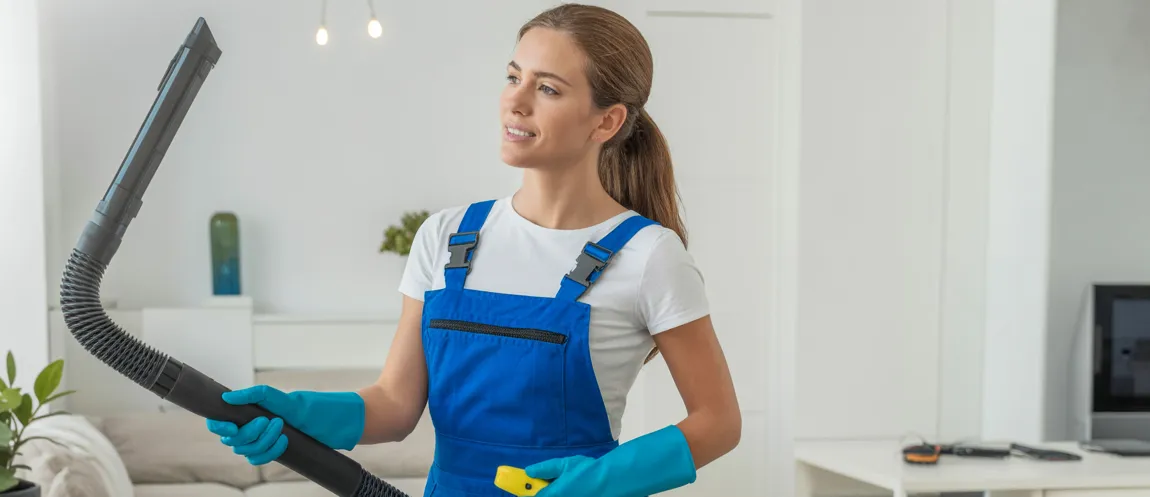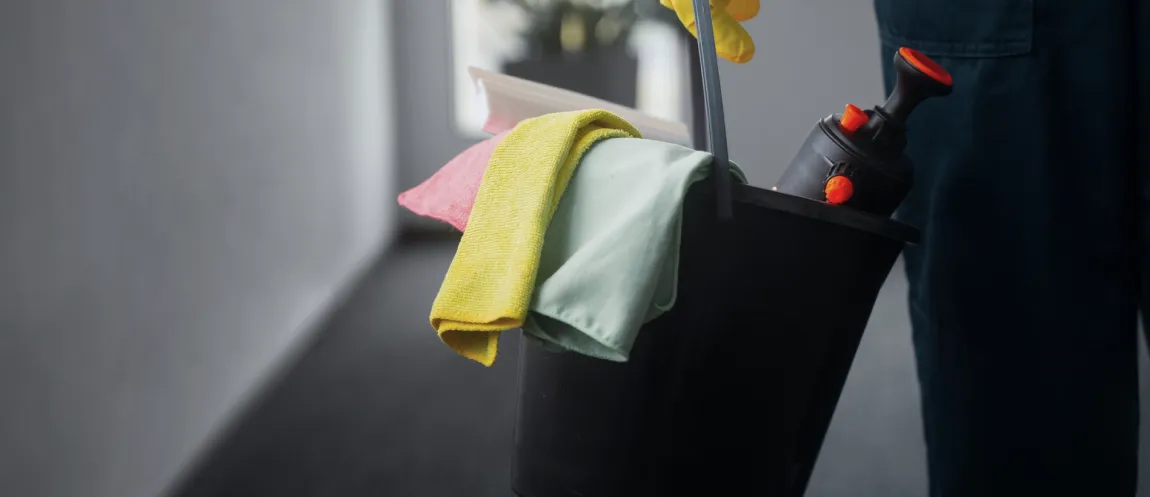What Do I Need To Know Before Starting A Cleaning Business?
The Initial Costs
Starting a business requires an upfront investment. Further, this money can be used for various purposes, such as:
● Training
● Equipment and supplies
● Legal fees (e.g., business registration)
● Marketing
● Administrative expenses
Some of these expenses may vary based on where you’re located. For instance:
● Virginia residents have to pay $100 for LLC formation or $75 for corporation registration
● Similarly, California residents are required to pay $95 for LLC formation or $125 for corporation formation.
If you opt for a franchise, you must also cover a franchising fee to operate legally under the franchisor’s brand. Although this can increase your expenses, many cleaning services in USA franchise owners appreciate the support they receive from the parent company.
Who Should You Target as Your Potential Customers?
Choose your target market wisely because it’ll impact your final earnings.
According to Jobber, a business resource site, Residential cleaning prices have increased by 9.4% since 2021. Furthermore, forecasts suggest that by 2024, 80% of American households will rely on standard cleaning services.
Still, despite these trends, many cleaning company owners prefer the commercial cleaning business model. Why is that?
To make money with residential cleaning, you’ll need a lot of customers. Commercial cleaning services cater to small, medium, and large businesses in the USA. Having bigger clients and fewer of them can often make it easier to secure advantageous, long-term contracts. Moreover, think about all the local retail stores, offices, senior living facilities, churches, and other companies that might require professional cleaning services.
Your Gains
Predicting your revenue can be quite complex.
● First, you have to figure out how many customers you’ll serve and set a price for your cleaning services.
● As a cleaning business owner, you need to balance competitive rates and rates that make you money.
● Also, you’ll need to decide whether to charge by the hour, have a fixed rate, or use a combination of both. Charging by the hour is usually more precise, but some customers prefer a flat rate they can budget for.
Operating Costs
Once you’re up and running, you’ll still need money to cover your day-to-day expenses. Also, running a cleaning business involves multiple different expenditures, including:
● Buying and maintaining supplies
● Keeping your equipment in good shape
● Paying your employees
● Covering business insurance
● Handling marketing expenses
● Dealing with banking fees
● Paying taxes
● Renting commercial space (though some businesses can operate from home)
If you run your cleaning services from home, you can avoid the cost of commercial space, especially if you are in New York. Nevertheless, these types of overhead expenses can affect your bottom line.
Do You Owe State or Federal Taxes?
Most business owners have to pay federal and state taxes on the income they earn from their businesses. While some states, like Florida, offer exemptions from business taxes, this might not apply to a commercial cleaning company.
How Profitable Is A Commercial Cleaning Business?
Average Annual Earnings for Cleaning Businesses
The income cleaning companies bring in the USA depends on their growth. Also, a small business can make about $30,000 to $50,000 per year. Adding more cleaners can boost earnings to around $70,000 annually. To maximize your income, consider offering extra services, potentially bringing in up to $100,000 a year.
Earning Potential with a Single Cleaner
● In the United States, solo business cleaners typically charge $25 to $40 per hour.
● If you start working 20 hours per week at a rate of $30 per hour, you can earn $600 weekly.
● As your business grows, you can increase your workload to 40 hours per week, serving a little over ten clients. It will potentially make $1,200 each week.
Earning Potential for a Commercial Cleaning Business
When it comes to cleaning commercial properties, the highest earning potential ranges from $70,000 to $100,000. However, this figure can vary depending on the number of employees you hire and the size of the buildings you clean.
We offer professional cleaning services to keep your home or office fresh and tidy! Book now for a clean and healthy space.
How Do I Succeed In A Commercial Cleaning Business?
Networking and Promotion
● Attending industry events
● Joining local business associations
● Forming relationships with property managers, office managers, and potential clients
These are all ways to foster growth. Another approach is to use a marketing strategy that combines online and offline methods:
● Social media promotion
● Email campaigns
● Traditional advertising
Providing Quality Service and Ensuring Customer Satisfaction
● Building a positive reputation is dependent on consistently delivering high-quality cleaning services.
● Moreover, satisfied customers are more likely to recommend your services and become repeat clients.
● It’s also important to put stringent quality control measures in place and actively seek feedback to make necessary improvements.
● Maintaining service quality largely depends on hiring and training dependable and skilled staff.
● Further, developing a comprehensive training program means your team is well-versed in industry best practices, safety protocols, and customer service standards.
Adapt and Innovate
The cleaning industry is constantly changing. Staying updated on industry trends, new technologies, and eco-friendly practices is advisable. Also, be open to innovation and adjust your services to meet the evolving demands of your clients.
Read Also: What Is The Role Of A Cleaning Service In Disaster Recovery?
How Big Is The Commercial Cleaning Market?
The cleaning services market in the USA is getting bigger. People are more concerned about keeping workplaces clean, taking care of their employees, and being eco-friendly. One of the main reasons for the growth of the cleaning services industry is the increase in the construction of non-commercial and commercial buildings.
Additionally, the use of technology, like automation, in commercial cleaning is helping the industry work better and faster. This could mean more opportunities for the global cleaning services market to expand.
According to a worldwide study by Sky Quest, more than 1.8 million people are working in the cleaning industry. And the demand for cleaning services is expected to grow by about 5% yearly. The analysis shows that the commercial cleaning category is likely to see the fastest growth, aiming for a 58% market share by 2028, with a steady yearly growth rate of 7.2%.
Takeaway
Now would be a really great time to join the cleaning companies’ community in the USA. Professionals like DLL Cleaning work day and night to give their clients the best quality janitorial services. This locks in success for most of us and will continue to do so for new companies dedicated to succeeding.




